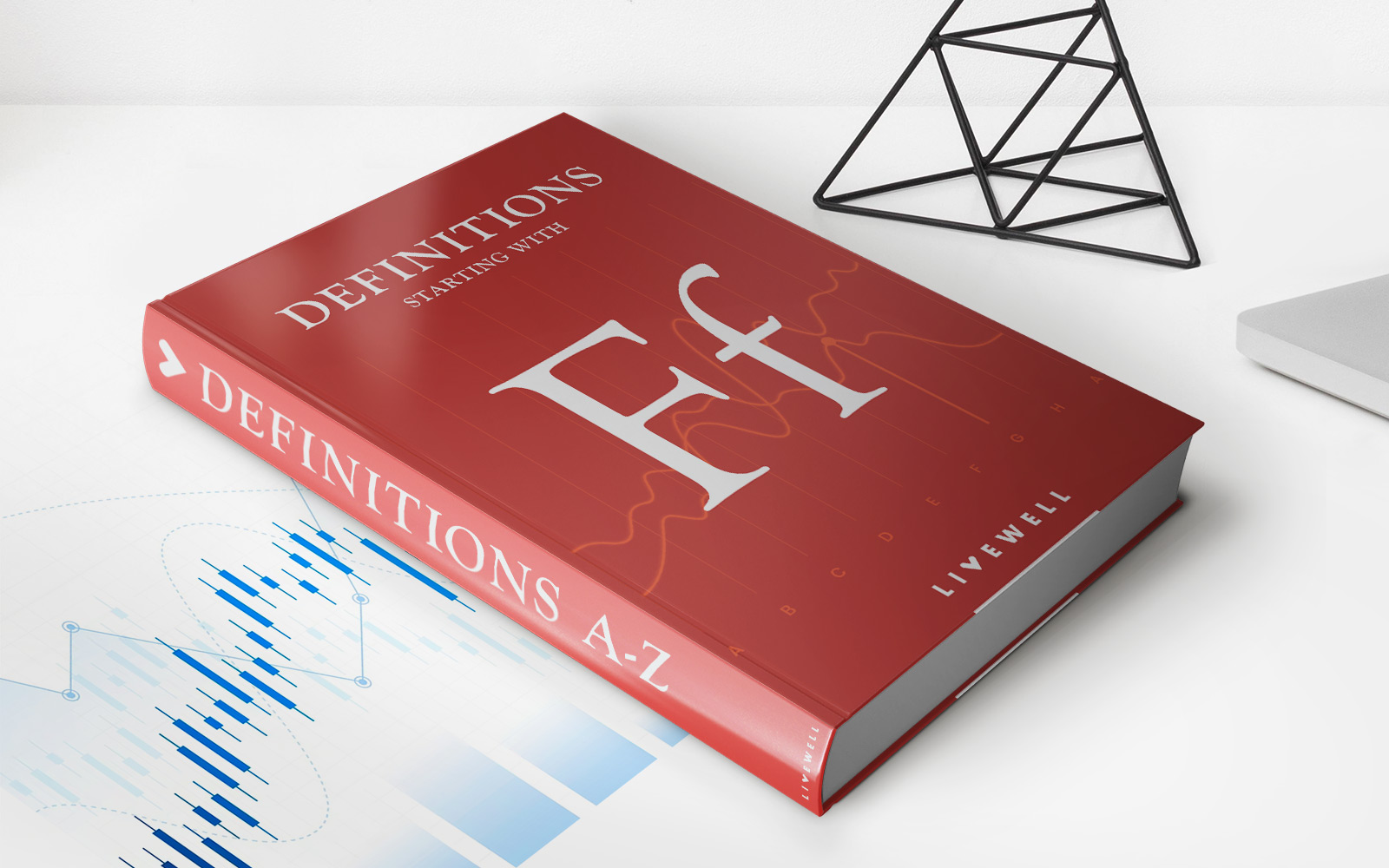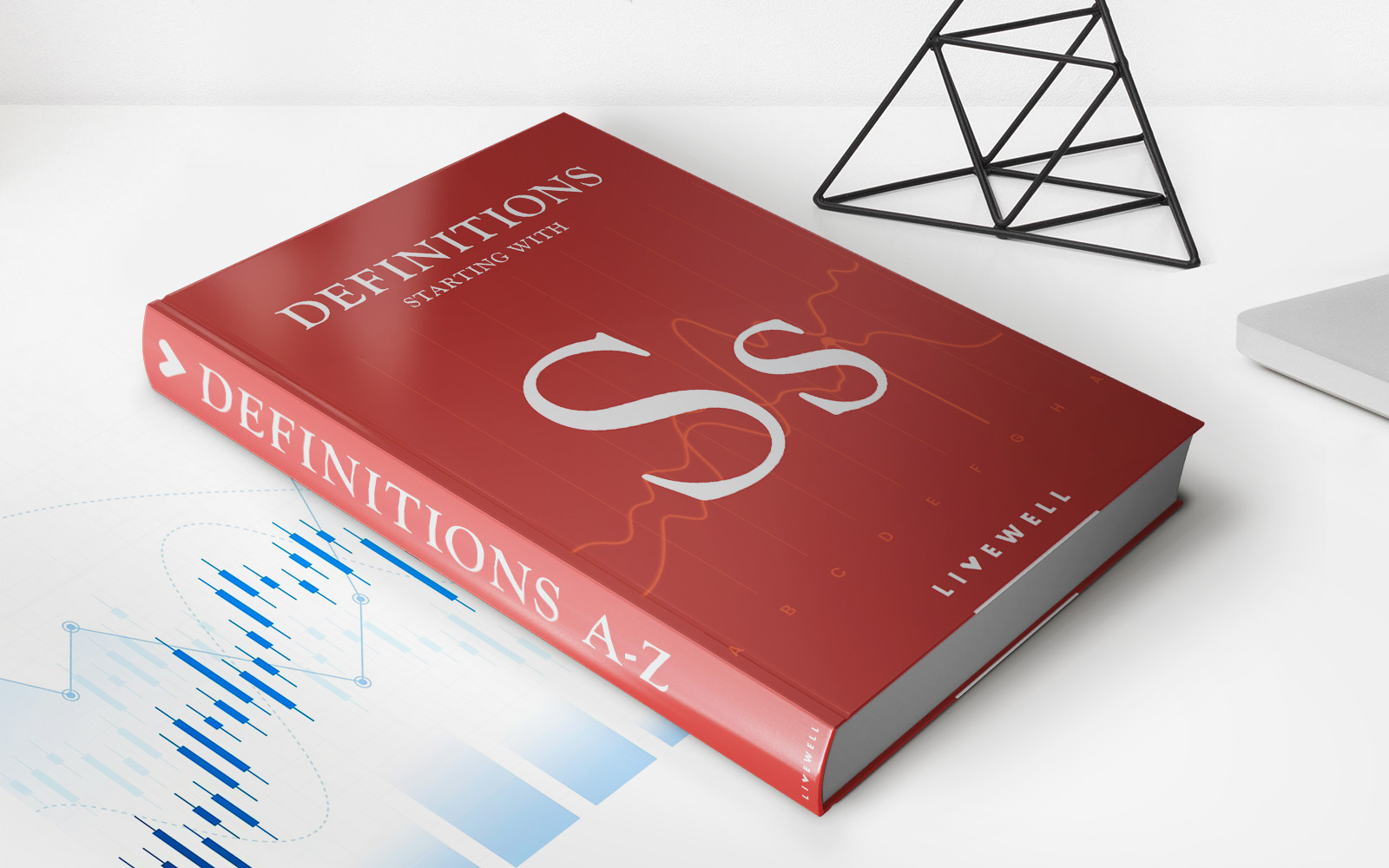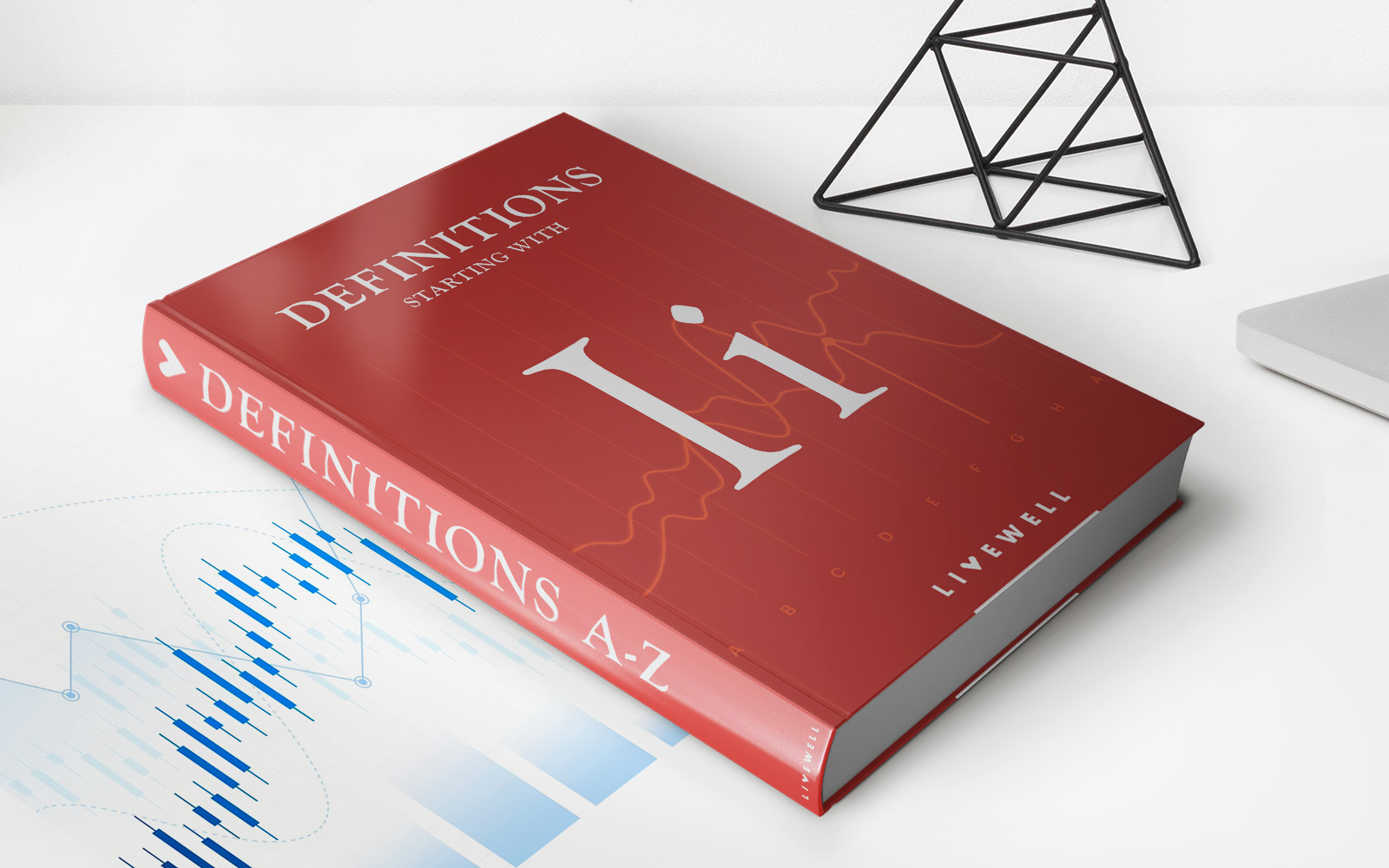Home>Finance>Why Do Certificates Of Deposit Tend To Offer Better Interest Rates Than Money Market Account


Finance
Why Do Certificates Of Deposit Tend To Offer Better Interest Rates Than Money Market Account
Modified: December 29, 2023
Find out why certificates of deposit often provide higher interest rates compared to money market accounts in the finance industry.
(Many of the links in this article redirect to a specific reviewed product. Your purchase of these products through affiliate links helps to generate commission for LiveWell, at no extra cost. Learn more)
Table of Contents
- Introduction
- Understanding Certificates of Deposit (CDs)
- Understanding Money Market Accounts (MMAs)
- Difference between CDs and MMAs
- Factors that Contribute to Higher Interest Rates in CDs
- Factors that Contribute to Lower Interest Rates in MMAs
- Comparison of Interest Rates between CDs and MMAs
- Benefits and Drawbacks of CDs
- Benefits and Drawbacks of Money Market Accounts (MMAs)
- Conclusion
Introduction
When it comes to saving money, individuals have a wide array of options to choose from. Among these options, Certificates of Deposit (CDs) and Money Market Accounts (MMAs) have gained popularity for their ability to provide better interest rates than traditional savings accounts. This article aims to delve into the reasons why CDs tend to offer higher interest rates compared to MMAs.
Before we dive into the details, let’s briefly understand what CDs and MMAs are. A Certificate of Deposit is a type of time deposit offered by banks and financial institutions. It is essentially a savings account with a fixed term, typically ranging from a few months to a number of years. On the other hand, a Money Market Account is a type of savings account that allows individuals to write checks and access their funds more easily compared to a traditional CD.
Now, let’s explore the factors that contribute to the disparity between the interest rates offered by CDs and MMAs. Understanding these factors will not only empower you to make better financial decisions but also help optimize your savings strategy.
Understanding Certificates of Deposit (CDs)
Certificates of Deposit (CDs) are financial instruments offered by banks and credit unions that provide a higher interest rate compared to regular savings accounts. They are a popular choice for individuals looking to save money for a specific period of time.
When you open a CD, you agree to deposit a fixed amount of money with the bank for a predetermined period, known as the term. The term can range from a few months to several years, and during this time, you cannot withdraw the funds without incurring a penalty. In return for this commitment, banks offer higher interest rates on CDs compared to other savings accounts.
The interest rates on CDs are determined by various factors, including the current economic conditions, the amount of money you deposit, and the duration of the term. Generally, the longer the term, the higher the interest rate. This is because banks benefit from having access to your funds for a longer period, allowing them to invest the money and generate profits.
CDs provide a safe and secure way to grow your savings. They are insured by the Federal Deposit Insurance Corporation (FDIC) up to the maximum limit of $250,000 per depositor per bank. This means that even if the bank were to fail, you would still be able to recover your deposited funds.
CDs offer fixed interest rates, which means that you will earn a predetermined amount of interest over the course of the term. This stability is beneficial for individuals who prioritize consistent returns and want to avoid the fluctuations associated with other investment options.
However, it is important to note that CDs may not be suitable for everyone. If you anticipate needing access to your funds in the near future, a CD may not be the best option, as early withdrawals typically come with penalties. Additionally, given the fixed nature of the interest rate, you may miss out on the potential for higher returns in a rising interest rate environment.
Understanding Money Market Accounts (MMAs)
Money Market Accounts (MMAs) are a type of savings account offered by banks and financial institutions that often provide higher interest rates compared to traditional savings accounts. MMAs combine the benefits of both savings accounts and checking accounts, offering individuals the ability to earn interest while maintaining easy access to their funds.
One key feature of MMAs is their ability to allow account holders to write checks and make electronic transfers, giving them more flexibility when it comes to accessing their funds. This convenience sets MMAs apart from Certificates of Deposit (CDs) and makes them a popular choice for individuals who require regular access to their savings.
MMAs typically require a higher minimum balance compared to regular savings accounts, but they offer higher interest rates in return. The interest rates on MMAs fluctuate based on various factors, including the current market conditions and the policies of the financial institution. While they may not achieve the same level of returns as long-term investments, MMAs provide a stable and relatively low-risk option for individuals seeking a balance between liquidity and earning potential.
Similar to CDs, MMAs are insured by the Federal Deposit Insurance Corporation (FDIC) up to the maximum limit of $250,000 per depositor per bank. This insurance provides an added layer of security for individuals, ensuring that their funds are protected even if the bank were to fail.
It’s important to note that MMAs often come with certain restrictions and limitations. For instance, there may be a limit on the number of transactions you can make per month or a requirement to maintain a minimum balance to avoid fees. It’s crucial to carefully review the terms and conditions of the MMA before opening an account to fully understand the potential restrictions and any associated costs.
While MMAs offer higher interest rates compared to regular savings accounts, they still tend to have lower rates compared to CDs. This is due to the increased flexibility and liquidity provided by MMAs. Since account holders can access their funds more easily, banks have less incentive to offer higher interest rates as they have to keep a portion of the funds readily available for withdrawals.
In summary, Money Market Accounts provide individuals with the ability to earn a higher interest rate compared to traditional savings accounts while maintaining convenient access to their funds. They offer a good balance between liquidity and earning potential, but it’s essential to understand any restrictions and fees associated with MMAs before opening an account.
Difference between CDs and MMAs
Certificates of Deposit (CDs) and Money Market Accounts (MMAs) are both popular savings options, but they have distinct features that set them apart. Understanding the key differences between CDs and MMAs can help you choose the right savings vehicle for your financial goals.
Liquidity: One of the primary differences between CDs and MMAs lies in their liquidity. CDs have a fixed term, during which you cannot withdraw funds without incurring a penalty. This provides less flexibility when it comes to accessing your money. On the other hand, MMAs offer greater liquidity, allowing you to easily write checks and make electronic transfers. This makes MMAs a better option for individuals who require regular access to their savings.
Interest Rates: Another significant difference is the interest rates offered. CDs tend to provide higher interest rates compared to MMAs. This is because CDs require you to commit your funds for a fixed term, allowing banks to offer a higher return on your investment. MMAs, on the other hand, offer competitive interest rates but usually lower than those of CDs due to the increased flexibility and accessibility they provide.
Investment Period: CDs have a defined investment period, ranging from a few months to several years. Once you invest in a CD, you lock in the interest rate for the duration of the term. In contrast, MMAs do not have a specific investment period. You can hold an MMA for as long as you desire, and the interest rate may fluctuate based on market conditions.
Penalties: With CDs, early withdrawal typically results in penalties. If you need to access your funds before the maturity date, you may be charged a percentage of the interest earned or even a portion of your principal. MMAs, on the other hand, do not carry such penalties, allowing you to withdraw funds without restrictions. However, keep in mind that MMAs may have transaction limits or require a minimum balance to avoid fees.
Insurance: Both CDs and MMAs are insured by the Federal Deposit Insurance Corporation (FDIC), providing up to $250,000 per depositor per bank. This means that if the bank were to fail, your funds would still be protected up to the insured limit.
Overall, the main differences between CDs and MMAs lie in their liquidity, interest rates, investment period, and penalties for early withdrawal. CDs offer higher interest rates but less access to funds, suited for individuals with longer-term savings goals. MMAs provide more liquidity and flexibility but may offer lower interest rates. Consider your financial needs, goals, and timeline before choosing between the two options.
Factors that Contribute to Higher Interest Rates in CDs
Certificates of Deposit (CDs) are known for offering higher interest rates compared to many other savings options. This is due to several factors that contribute to the increased returns on CDs. Understanding these factors can help you comprehend why CDs tend to provide better interest rates:
- Time Commitment: When you open a CD, you agree to keep your funds deposited with the bank for a fixed term. This time commitment provides banks with a predictable source of funds, which they can use for various purposes, such as making loans or investments. The longer the term of the CD, the higher the interest rate offered, as banks value the stability and longer access to the funds.
- Lack of Liquidity: Unlike regular savings accounts or money market accounts, CDs typically have limited or no access to your funds until the maturity date. This lack of liquidity allows banks to offer higher interest rates, as they do not need to have the funds readily available for withdrawal. It also discourages account holders from making frequent withdrawals, ensuring a stable source of funds for the bank.
- Market Conditions: The overall economic environment can influence CD interest rates. When interest rates in the market are high, banks have to offer competitive rates to attract and retain customers. Conversely, when interest rates are low, banks may lower the rates offered on CDs to manage their costs and maintain profitability. Therefore, market conditions play a significant role in determining the interest rates on CDs.
- Competition: Banks and financial institutions compete with each other to attract deposits from customers. Higher interest rates on CDs are often part of their strategy to entice individuals to choose their CD products. This competition can lead to better rates for consumers as banks strive to differentiate themselves in the market.
- Deposit Size: The amount of money you choose to deposit in a CD can also impact the interest rate offered. In general, larger deposits tend to receive higher interest rates as banks are eager to incentivize customers to keep substantial amounts of funds with them. Additionally, larger deposits provide banks with more funds to work with, allowing them to generate more significant returns.
While these factors contribute to higher interest rates on CDs, it’s important to consider your financial goals and needs before investing in a CD. Remember that CDs have fixed terms and limited access to funds, so evaluate whether these features align with your savings goals and timeline.
Factors that Contribute to Lower Interest Rates in MMAs
Money Market Accounts (MMAs) are known for their convenience and liquidity, but they often offer lower interest rates compared to other savings options, including Certificates of Deposit (CDs). Several factors contribute to the lower interest rates on MMAs:
- Flexibility and Access to Funds: MMAs provide account holders with the ability to write checks, make electronic transfers, and have easy access to their funds. While this convenience is a significant advantage, it also means that the funds in MMAs are more readily available for withdrawal. To accommodate this flexibility, banks offer lower interest rates on MMAs compared to CDs, where access to funds is limited.
- Market Conditions: Similar to CDs, the interest rates on MMAs are influenced by market conditions. When the overall interest rates set by central banks are low, financial institutions adjust the rates on MMAs accordingly to manage their costs. These market conditions, including the Federal Reserve’s monetary policy, directly affect the interest rates offered on MMAs.
- Competition: The competitive landscape among banks and financial institutions also plays a role in setting interest rates on MMAs. Financial institutions strive to attract customers by offering different features and benefits, including competitive interest rates on MMAs. However, due to the increased flexibility and liquidity associated with MMAs, banks may be hesitant to offer higher rates as they need to keep a portion of the funds readily available for withdrawals.
- Cost of Operation: Banks incur costs to maintain MMAs and provide the associated features and benefits. These costs include administrative expenses, transaction processing, customer service, and technology infrastructure. To cover these operational costs, banks may offer lower interest rates on MMAs compared to other long-term savings instruments.
- Regulatory Requirements: Financial institutions must comply with various regulations and reserve requirements set by regulatory authorities. These requirements may restrict banks’ ability to offer higher interest rates on MMAs, as they need to maintain a certain level of liquidity and adhere to the regulations imposed by governing bodies.
While MMAs offer the advantage of liquidity and easy access to funds, it’s important to carefully consider your financial goals and needs in relation to interest rates. If higher returns are a priority and you can tolerate limited access to your funds for a specific period, you may want to explore other savings options such as CDs. However, if liquidity and convenience are paramount, an MMA can still provide a reasonable return that balances both needs.
Comparison of Interest Rates between CDs and MMAs
When deciding between a Certificate of Deposit (CD) and a Money Market Account (MMA), one important factor to consider is the difference in interest rates offered by these savings options. While both CDs and MMAs provide the ability to earn interest on your savings, there are distinct variations in the rates offered:
CD Interest Rates: CDs typically offer higher interest rates compared to MMAs. This is because CDs require a fixed term commitment, during which you cannot withdraw funds without penalty. The longer the term of the CD, the higher the interest rate. Banks are willing to offer higher rates on CDs as they benefit from having access to the funds for a specified period, allowing them to invest the money and generate profits.
MMA Interest Rates: MMAs, on the other hand, offer competitive interest rates but usually lower than those of CDs. This lower rate is due to the increased liquidity and accessibility provided by MMAs. With MMAs, you have the flexibility to write checks, make electronic transfers, and access your funds more easily. Consequently, banks have to keep a portion of the funds readily available for withdrawals, which may limit their ability to offer higher interest rates.
Market Conditions: Both CD and MMA interest rates are influenced by market conditions and the policies of financial institutions. The overall interest rate environment, as determined by factors such as the Federal Reserve’s monetary policy, directly affects the rates offered on both CDs and MMAs. During periods of low interest rates, such as an economic downturn, both CD and MMA rates may trend lower. Conversely, during periods of high interest rates, rates on both may be more attractive.
Terms and Flexibility: It’s important to note that CDs have fixed terms, while MMAs do not have specific investment periods. With CDs, you commit to a specific length of time, locking in the interest rate for that period. MMAs, on the other hand, generally offer more flexibility in terms of accessing your funds. This flexibility comes at the expense of slightly lower interest rates compared to CDs.
When considering the comparison of interest rates between CDs and MMAs, it’s crucial to understand your financial goals, time horizon, and liquidity needs. If you value higher returns and can commit to a fixed term, a CD might be the better option for you. However, if liquidity and accessibility are more important, an MMA could be a suitable choice, even with slightly lower interest rates. Evaluate your priorities and consult with a financial advisor to make an informed decision based on your unique circumstances.
Benefits and Drawbacks of CDs
Certificates of Deposit (CDs) offer a range of benefits and drawbacks that individuals should consider when deciding whether to invest in them as a savings option:
Benefits:
- Higher Interest Rates: CDs typically offer higher interest rates compared to regular savings accounts and some other investment options. This makes them an attractive choice for individuals seeking to grow their savings over a fixed term while earning a stable return.
- Safety and Security: CDs are considered low-risk investments. They are insured by the Federal Deposit Insurance Corporation (FDIC) for up to $250,000 per depositor per bank, providing peace of mind to investors. Even in the event of a bank failure, your funds are protected.
- Stability and Predictability: With a CD, you know exactly how much interest you will earn over the term of the investment. This stability can be beneficial for individuals who prefer a more predictable return without the volatility associated with other investment options.
- Flexibility in Terms: CDs offer various term options, ranging from a few months to several years, allowing you to choose a duration that aligns with your savings goals and needs.
- Savings Discipline: By committing your funds to a CD, you are less likely to spend or withdraw them impulsively. This can help promote disciplined saving habits and prevent unnecessary spending.
Drawbacks:
- Limited Liquidity: With CDs, your funds are locked in for a fixed term. Early withdrawals typically come with penalties, which can reduce your overall return. Therefore, CDs may not be suitable for individuals who anticipate needing immediate access to their funds.
- Opportunity Cost: By investing in a CD, you forgo the opportunity to take advantage of potentially higher returns in other investment options such as stocks or mutual funds. CDs are considered conservative investments and may not yield the same level of returns as riskier investment vehicles.
- Interest Rate Risk: When you invest in a CD, you are committing to a specific interest rate for the term of the investment. If interest rates rise during this period, you may miss out on the opportunity to earn a higher return. However, if rates drop, you benefit from locking in a higher rate.
- Minimum Deposit Requirement: Many banks require a minimum deposit to open a CD. This requirement may limit accessibility for those with smaller savings or those seeking more flexible investment options.
- Inflation Risk: As with any fixed return investment, CDs are subject to inflation risk. If inflation outpaces the interest earned on the CD, the purchasing power of your savings may decrease over time.
Consider your financial goals, risk tolerance, and liquidity needs before investing in a CD. While they offer several benefits such as higher interest rates, stability, and safety, be aware of the potential drawbacks, such as limited liquidity and opportunity cost, to make an informed decision.
Benefits and Drawbacks of Money Market Accounts (MMAs)
Money Market Accounts (MMAs) offer a range of benefits and drawbacks that individuals should consider when deciding whether to utilize them as a savings option:
Benefits:
- Liquidity and Accessibility: MMAs provide easy access to funds, allowing individuals to write checks, make electronic transfers, and, in some cases, use a debit card. This flexibility makes MMAs a suitable choice for those who require regular access to their savings.
- Competitive Interest Rates: Although the interest rates on MMAs are typically lower than those of Certificates of Deposit (CDs), they are still competitive compared to traditional savings accounts. MMAs can offer a better return on savings while providing the convenience of withdrawal options.
- Safety and Security: Similar to CDs, MMAs are insured by the Federal Deposit Insurance Corporation (FDIC) for up to $250,000 per depositor per bank. This insurance provides individuals with the assurance that their savings are protected, even in the event of a bank failure.
- Diversification: MMAs allow individuals to diversify their savings portfolio. By allocating funds into an MMA, alongside other savings or investment vehicles, individuals can balance liquidity with potentially higher returns from other investments.
- Stability: MMAs provide relatively stable returns compared to other higher-risk investments, such as stocks or mutual funds. This stability can be beneficial for those seeking a safe and conservative option to store their savings while still earning interest.
Drawbacks:
- Lower Interest Rates: Although MMAs offer competitive interest rates, they tend to be lower than those of CDs. This is because MMAs provide greater accessibility and liquidity, requiring financial institutions to keep a portion of the funds readily available for withdrawals.
- Transaction Limits: MMAs typically have restrictions on the number of transactions or withdrawals that can be made each month. Financial institutions may impose fees or penalties when these limits are exceeded. It’s important to be aware of these limitations and understand how they may affect your ability to access your funds.
- Minimum Balance Requirements: Many MMAs require a minimum balance to be maintained to avoid monthly fees. This requirement may make MMAs less accessible for individuals with smaller savings or those who cannot commit to maintaining a specific balance.
- Inflation Risk: Like any other low-risk investment, MMAs are subject to inflation risk. If the interest earned on the MMA does not keep pace with inflation, the purchasing power of your savings may decrease over time.
- Opportunity Cost: By allocating funds to an MMA, you may potentially miss out on higher returns available in riskier investment options, such as stocks or mutual funds. It is essential to consider your investment goals and risk tolerance when deciding to utilize an MMA.
Consider your financial needs, goals, and liquidity requirements before opting for a Money Market Account. While MMAs offer benefits such as liquidity, accessibility, and competitive interest rates, it’s important to be aware of the potential drawbacks, such as lower returns and transaction limits, to make an informed decision.
Conclusion
When it comes to choosing between Certificates of Deposit (CDs) and Money Market Accounts (MMAs), understanding the key differences and considering their respective benefits and drawbacks is essential. Both options offer advantages and cater to different financial needs and goals.
Certificates of Deposit (CDs) provide the benefit of higher interest rates, making them an attractive choice for individuals looking to earn a stable return over a fixed term. They offer stability, safety, and the opportunity for disciplined savings. However, CDs have limitations in terms of liquidity and potential opportunity cost, as higher returns in riskier investments may be forgone.
On the other hand, Money Market Accounts (MMAs) provide a balance between liquidity and earning potential. They offer convenient access to funds, competitive interest rates, and a certain level of safety. MMAs are suitable for individuals who require regular access to their savings and prefer the flexibility of writing checks or making electronic transfers. However, MMAs generally have lower interest rates compared to CDs and may have transaction limits or minimum balance requirements.
Ultimately, the choice between CDs and MMAs depends on your financial goals, time horizon, and liquidity needs. Consider factors such as the desired level of return, risk tolerance, and the length of time you can commit to a specific investment option. It may also be beneficial to diversify your savings strategy by allocating funds to both CDs and MMAs, taking advantage of their respective benefits.
Remember to carefully review the terms and conditions, including any penalties or fees associated with early withdrawals or exceeding transaction limits. Consult with a financial advisor to ensure your chosen savings option aligns with your overall financial plan and helps you achieve your goals.
Ultimately, whether you choose a CD or an MMA, both options provide valuable opportunities to save and earn interest. By understanding the factors that contribute to interest rate disparities and weighing the benefits and drawbacks, you can make an informed decision that aligns with your financial objectives and helps optimize your savings strategy.














